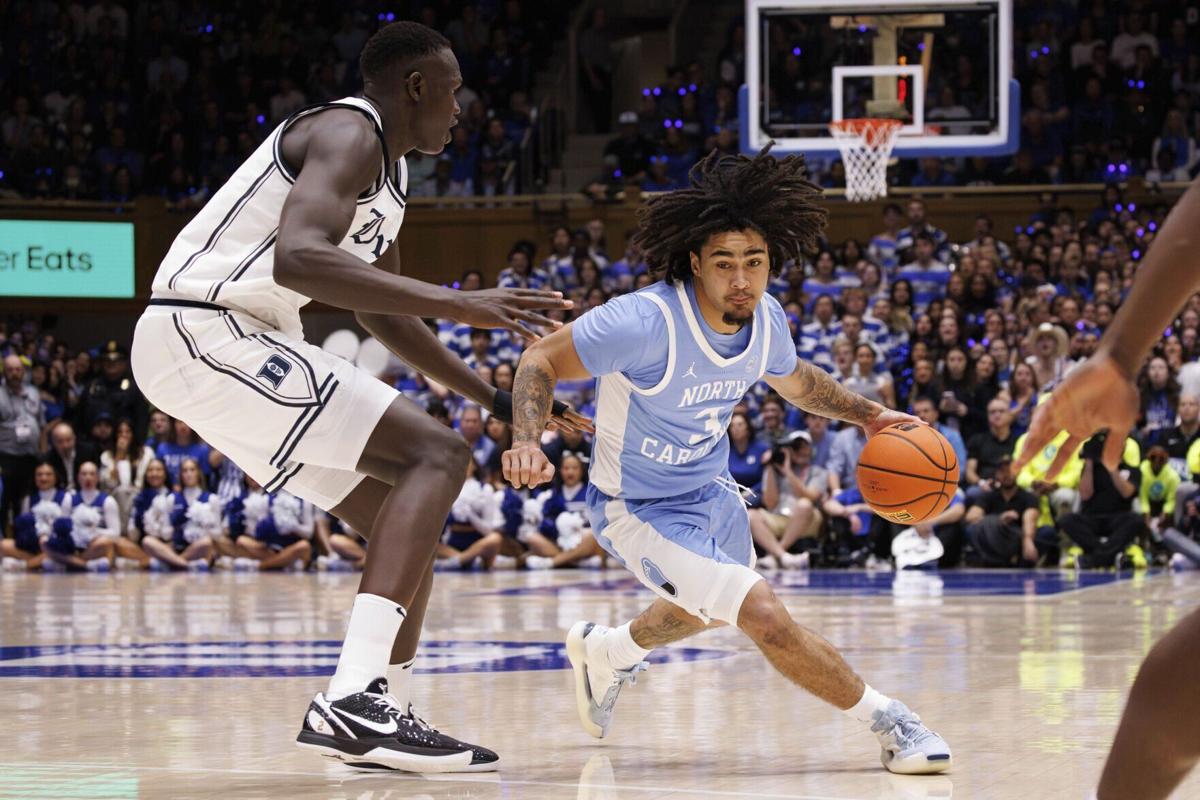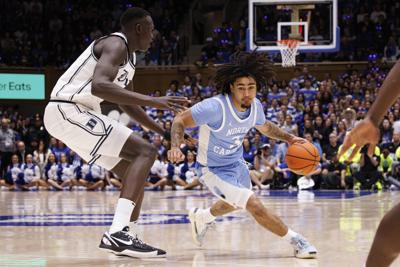Legal betting in North Carolina turned 1 year old on March 11, and state residents have won just under $6 billion through Feb. 28, according to the N.C. Lottery Commission.
Bettors have spent $6.61 billion on bets.
Supporters of legal betting, particularly bipartisan legislative sponsors, envisioned the revenue generated serving as a modest supplement to the state’s General Fund to help offset recent annual reductions in the corporate and individual income taxes.
Legislative analysis of House Bill 347, which authorized sports wagering, projected about $40 million in 2024 annual tax revenue, and more than $100 million annually by 2029.
However, the total from March 11 through Feb. 28 already was $129.5 million, according to the N.C. Revenue Department.
The monthly sports wagering report is based on activity submitted by the eight operators licensed to operate in the state: Betfair Interactive; BetMGM; Crown NC Gaming; FBG Enterprises Opco; Hillside (North Carolina); Penn Sports Interactive doing business as ESPN Bet; Tribal Casino Gaming Enterprise, an enterprise of the Eastern Band of Cherokee Indians; and Underdog Sports Wagering.
People are also reading…
“Sports wagering transformed a gray market into a source of funding,” said Rep. Zack Hawkins, D-Durham, and a co-sponsor of the betting law. “It has converted passion for our state’s elite professional and collegiate athletics program into a reliable source of revenue.”
Hawkins said sports wagering revenue “has made a positive impact in so many ways,” citing $722,825 contributed to date for the N.C. Amateur Sports group that has been awarded to 73 community organizations, cities, parks and recreation departments.
Several public school districts in the Triad and statewide have dedicated funds received from betting taxes toward athletic fields improvements, such as installing turf on their football fields that require lower annual maintenance than grass.
“These grants have provided athletics equipment, fields and facilities, and leagues to get our children playing and competing,” Hawkins said.
Meanwhile, Rep. Pricey Harrison, D-Guilford, and an opponent of the sports wagering law, said that “regardless of whether revenue expectations have been met, the overall impact of sports betting is a net loss for North Carolina.”
“In states that have legalized online sports betting, the evidence shows that it leads to more problem gambling and draining of household finances than other forms of gambling. It also leads to lower credit scores, increased credit card debt, and higher rates of bankruptcies.
“Rather than trying to increase revenue with policies that damage families and communities, lawmakers should stop the relentless push to lower taxes for corporations and the wealthiest among us.”
Analysts’ perspectives
predicted North Carolina could generate as much as $128 million in tax revenue over the first 12 months.
“While not a massive leap, this steady growth demonstrates the sustained interest in legal sports wagering across the state,” Bittenbender said.
He said it’s realistic for North Carolina to experience between 10% and 15% annual growth in the short term, although a potential state and/or national economic downturn could leave bettors with less money to wager.
“I think North Carolina will continue to be a fruitful market for the sports wagering operators because of the popular mix of professional and college sports, even with the typical summer lull because of the lack of an MLB team,” Bittenbender said.
The tax revenue may be exceeding initial expectations, but the benefit to the state “appears much less impressive,” said John Quinterno, principal with South by North Strategies Ltd., a Chapel Hill research company specializing in economic and social policy.
“Based on the current distribution formula, only around $50 million may wind up in the general fund and become available for general public purposes like education, health and justice,” Quinterno said.
Quinterno said to put the $50 million in context, “if all the gambling revenues went to the state’s general fund, it would amount to less than 0.5% of total estimated revenues.”
“The actual amount that reaches the general fund will be even smaller and have no perceptible mark on the budget, especially given the significant unmet needs and forecasted revenue shortfalls in upcoming fiscal years.”
UNC System gets money
A financial sweetener to secure support for betting — dedicated annual funding for 13 UNC System members’ athletics department — is likely to be millions of dollars more lucrative than initially projected.
Benefiting are Appalachian State, N.C. A&T, UNC-Greensboro and Winston-Salem State in the Triad and northwest N.C. All UNC System members but UNC Chapel Hill and N.C. State are eligible.
The expectations were modest for the first 12-month period of at least a $300,000 commitment to each department.
However, through December, there has been $24.42 million in tax proceeds provided to the 13 members, or $1.88 million each.
That’s broken down to $821,206 in fiscal 2023-24 and about $1.06 million so far in fiscal 2024-25.
According to a legislative fiscal analysis report, “the consensus revenue forecast estimates about $1.7 million will be allocated to each institution by the end of fiscal 2024-25.











